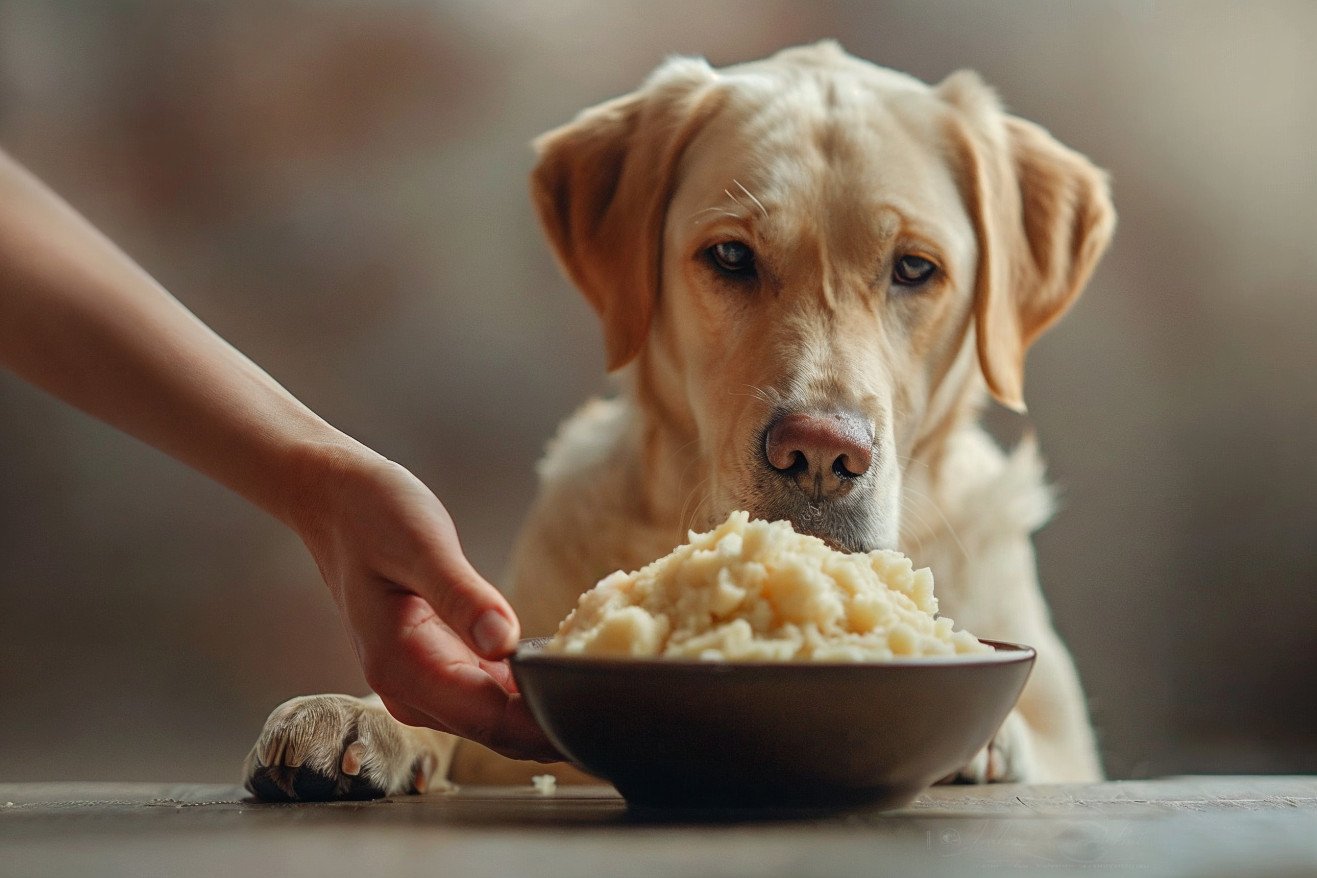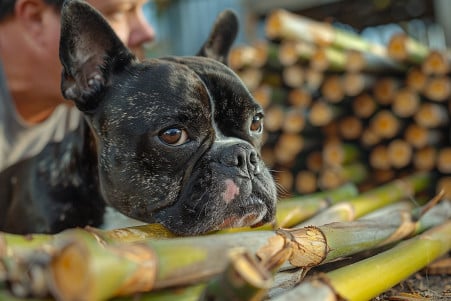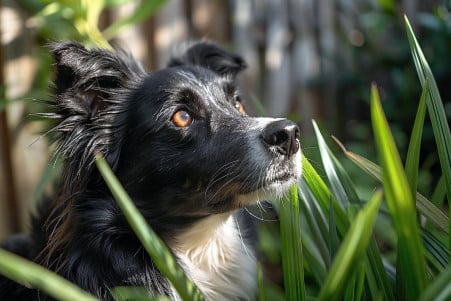Can Dogs Eat Cassava? Potential Risks and Safety Guidelines
12 June 2024 • Updated 11 June 2024

Although cassava is not poisonous to dogs in small amounts, pet parents should be wary of feeding this starchy root vegetable to their furry friends because of some potential health issues. Cassava contains cyanogenic glycosides, which are natural compounds that can release cyanide when ingested. Even though cooking cassava can help lower its cyanide content, it can still be dangerous to dogs in large amounts. If dogs eat cassava that's raw or hasn't been prepared correctly, it can lead to symptoms like vomiting, diarrhea, difficulty breathing, and tremors, and in the most serious cases, coma or death.
We'll look at studies by veterinary nutritionists, toxicologists, and other animal care professionals to find out when small amounts of cooked cassava may be OK for dogs and what symptoms to look out for if your dog has been poisoned. This way, you can better determine the potential risks and how to proceed if you're thinking about adding this root vegetable to your dog's diet.
Can dogs eat cassava?
Risks of Raw or Improperly Prepared Cassava for Dogs
Raw cassava is incredibly dangerous for dogs because it contains cyanogenic glycosides, which can release cyanide when consumed. According to Dogster, dogs can experience cyanide poisoning and death within hours if they eat a large amount of raw cassava. However, even small amounts of raw cassava can be toxic if consumed regularly.
A study published by the CDC showed that cyanide poisoning from cassava can lead to vomiting, diarrhea, lethargy, seizures, difficulty breathing, and other symptoms in dogs. Dogs that are small in size may be more susceptible to the effects of cyanide poisoning. To avoid these risks, it is important to make sure that cassava is cooked, washed, and peeled before it is fed to dogs to remove or reduce the cyanide content.
If a dog eats raw cassava or shows signs of poisoning like those listed in this article, they need to be taken to the vet for emergency treatment immediately. Even small amounts of raw cassava can quickly become life-threatening. In fact, a study on goats showed that feeding them cassava leaves for an extended period of time led to lesions and cellular damage that is consistent with cyanide toxicity. This shows that the risks of feeding dogs improperly prepared cassava are very real.
How to Safely Prepare Cassava for Dogs
Cassava should be cooked before being given to dogs to prevent cyanide poisoning. As noted by DogTime, safe ways to prepare cassava for dogs include boiling, baking, roasting, or steaming the cassava until it is soft and fully cooked. Hepper also notes that soaking cassava for 24 hours before cooking can help lower the cyanide levels.
Do not give dogs processed cassava products like chips or fried sticks, as they may still contain toxic substances. Kate's K9 Pet Care recommends pre-cut, frozen cassava that has been cooked and is ready to eat as a safe and convenient option for dog parents. When prepared properly, cassava can be given to dogs in moderation without posing a risk.
How Much Cassava Can Dogs Eat?
Cassava should be given to dogs in moderation as a supplement to a well-balanced diet, not as a meal replacement. As with any new food, the amount of cooked cassava that can be given to dogs will vary based on the dog's size, age, and individual dietary requirements, according to Hepper. Because cassava is high in carbohydrates and calories, it's important to watch portion sizes to prevent weight gain and obesity.
Most veterinarians recommend that cassava make up no more than 10-15% of a dog's daily caloric intake, as noted in this article. It's also important to observe how your dog reacts to cassava and adjust portion sizes accordingly, especially since some dogs may be more sensitive to cassava than others.
Cassava's Health Benefits and Nutritional Content for Dogs
When consumed in moderation and prepared properly, cassava can offer some health benefits for dogs. The South African explains that cassava is high in vitamin C, which can help boost a dog's immune system and skin and coat health. Moreover, the resistant starch found in cassava can act as a prebiotic, which can help improve gut health and digestion, according to a study in Animal Feed Science and Technology.
Cassava can also be a good option for dogs with allergies or sensitivities to wheat or grains. That said, according to research in the Journal of Veterinary Medicine, cassava is low in protein and other important nutrients, so it should not be used as a dog's sole food source. The benefits of cassava need to be considered in light of the risks and the need to prepare it properly to make sure it's safe for each dog.
Safety Risks of Cassava Leaves and Other Plant Parts
While the root of the cassava plant is safe for dogs to eat when properly prepared, the leaves and other parts of the plant may contain higher levels of toxic substances. As noted by Dogster, cassava leaves have been shown to contain cyanogenic glycosides that can release cyanide when eaten, which can be highly toxic to dogs.
A study published in the Journal of Veterinary Medicine reported that long-term consumption of cassava leaves has been associated with toxic effects in other animals, such as goats, that include liver, thyroid, and brain damage. It's therefore best to avoid giving dogs any part of the cassava plant except for the root when it has been properly cooked.
Dog parents should also make sure to dog-proof their environment and provide proper training to prevent dogs from accidentally consuming cassava leaves or other plant material. This will help ensure that dogs are safe from the potential risks of this otherwise beneficial root vegetable.
Conclusion: Should You Feed Your Dog Cassava?
Cassava can be a safe and potentially beneficial addition to a dog's diet when properly prepared and fed in moderation. However, the risks associated with raw or improperly cooked cassava, including cyanide poisoning, should not be taken lightly. Dog owners should carefully consider their individual dog's dietary needs, allergies, and sensitivities before introducing cassava.
Consulting with a veterinary professional and following strict safety guidelines for preparation and portion control is recommended. While cassava can provide some nutritional benefits, it should not be relied upon as a primary food source for dogs due to its limitations and potential risks.


